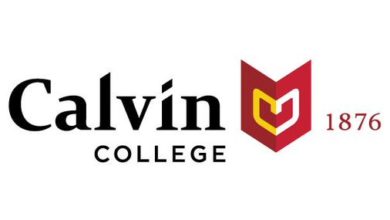Embarking on a medical journey offers immense growth and rewards. For aspiring high school students, this article and the accompanying video are invaluable. MedSchoolCoach experts, Dr. Kachiu Lee MD and seasoned college advisor Laura Baldasare, share insights to navigate the path to medical school.
[Skip to FAQs from the webinar]
Together, they shed light on the nuances of preparing for medical school, choosing the right college, and navigating the world of BS/MD programs. Dive in to equip yourself with a strategic roadmap for a successful medical career.
Dive into the World of Medicine Early On
The medical field is vast and varied, offering a plethora of experiences that can shape your perspective and passion. As a budding medical enthusiast, it’s crucial to immerse yourself in real-world scenarios to gauge your interest and commitment.
- Engage in Clinical Exposure – Start by seeking opportunities to shadow doctors or other medical professionals. This will give you a firsthand experience of the medical environment and help you understand the day-to-day responsibilities of healthcare professionals.
- Leverage Local Resources – Connect with local pediatricians or family doctors. They can provide insights, guidance, and potentially offer shadowing opportunities.
- Consider Virtual Shadowing – If in-person opportunities are limited, explore virtual shadowing. While it may not replace the experience of being physically present, it still offers valuable insights. Try Beyond Shadowing: A Virtual Clinical Education. It’s free, and you’ll also earn certificates of completion for hours spent.
Strategically Juggle Academics and Passion Projects
The journey to a medical career is as much about academic excellence as it is about personal growth and diverse experiences. Striking the right balance between your studies and extracurricular activities can set you apart.
- Prioritize Schoolwork – Ensure you maintain a strong academic record, especially in your junior year, as it’s the last full year of grades colleges will see before applications.
- Be Selective with Activities – Instead of spreading yourself thin across numerous clubs and leadership roles, choose a few that truly resonate with your interests and where you can make a significant impact.
- Manage Your Time – Allocate specific times for studies, extracurricular activities, and personal relaxation. Remember, colleges value well-rounded individuals who demonstrate balance in their lives.
Demystify the College Application Journey
The college application process can seem overwhelming, but with a clear understanding and strategic approach, you can navigate it effectively. Equip yourself with knowledge and resources to ensure a smooth transition from high school to your dream college.
- Start Early – Begin your college application process in your senior year. However, you can start preparing as early as your junior year by working on your Common App essay and other foundational elements.
- Seek Recommendations – Approach your teachers for letters of recommendation by the end of your junior year. Choose teachers who know you well and can provide a personalized recommendation.
- Research BS/MD Programs – If you’re certain about a medical career, consider BS/MD programs. These programs offer a direct path from undergraduate to medical school, ensuring a streamlined journey.
Make Informed College Choices
While it might be tempting to apply to numerous colleges, focus on quality over quantity. Ensure that your applications are well-prepared and tailored to each institution.
- Limit Your Applications – While it might be tempting to apply to numerous colleges, focus on quality over quantity. Ensure that your applications are well-prepared and tailored to each institution.
- Research BS/MD Programs – If you’re considering a BS/MD program, understand its requirements and benefits. These programs are rigorous and are best suited for those committed to a medical career from the outset.
- Stay Updated – College requirements and application processes can change. Stay informed by regularly checking college websites or consulting with guidance counselors.
Dive Deeper into Medical Roles
The medical field is vast, with a myriad of roles and responsibilities. As you embark on your journey, it’s essential to understand the nuances of each position. This will not only help you make informed decisions but also tailor your educational path to align with your desired role.
- Differentiate Between Roles – Understand the difference between roles like doctors and nurse practitioners. While both are integral to healthcare, their training, responsibilities, and expertise vary.
- Seek Mentorship – Engage with professionals in the field to gain insights into various roles. This will help you make an informed decision about the specific path you want to take in medicine.
- Stay Updated on Industry Trends – The medical field is ever-evolving. Regularly read medical journals, attend webinars, and participate in workshops to stay abreast of the latest developments.
Join the High School Alliance of Future Physicians
The High School Alliance of Future Physicians (HSAFP) initiative is a must for every high school student considering a career in medicine. It is a national organization with local student groups on campuses all across the country dedicated to bring together like-minded students, providing them with resources, mentorship, and opportunities tailored to their medical aspirations.
- Connect with peers – Being a part of this alliance allows students to network with peers who share similar goals, creating a supportive community that can be invaluable throughout their journey.
- Leverage Exclusive Resources – Members benefit from a plethora of resources, from webinars to workshops, all designed to provide insights into the medical world.
-
Seek Guidance from Experts – With mentors like Hari Ganesh and other professionals in the field, students can receive personalized advice, helping them make informed decisions about their future.
For those serious about a medical career, joining the High School Alliance of Future Physicians can be a game-changer, offering a head start in this competitive field. Lead or join a local HSAFP chapter today!
Our Expert Advisors can guide you through the medical school journey, helping you navigate admissions and applications to boost your chances of entering your dream school. Start your medical journey with confidence!
Questions from the Webinar
Medical School & BS/MD Programs:
Q: What are the fundamental stages that an international student graduating from a US high school must undertake to embark on a medical career within the US?
A: International students must first complete an undergraduate degree, preferably with a pre-med focus. They should then take the MCAT, apply to medical schools, complete medical school, and finally, undergo residency training. It’s also essential to ensure visa and residency status align with medical career goals in the US.
Q: What is the difference between a Doctor and nurse practitioner in terms of workload and responsibilities?
A: Doctors undergo extensive medical training and can diagnose, treat, and perform surgeries. Nurse practitioners have advanced nursing training and can diagnose and treat conditions, but their scope varies by state. Both play crucial roles in patient care.
Q: What is the difference between MD and DO when referring to studying, work, and responsibility?
A: Both MDs (Doctor of Medicine) and DOs (Doctor of Osteopathic Medicine) are fully licensed physicians. The primary difference lies in their training and philosophy of care. DOs receive additional training in osteopathic manipulative treatment and often have a more holistic approach.
Q: What is the difference between Pre-med and BS/MD?
A: Pre-med is a track undergraduates follow in preparation for medical school, while BS/MD is a combined program that guarantees admission to medical school after completing an undergraduate degree.
Application & Admission Process:
Q: How do you go about applying for BS/MD, does it come with only applying to certain schools?
A: BS/MD programs are specific to certain institutions. Students must apply directly to these programs, often meeting more stringent requirements than typical undergraduate admissions.
Q: Can you comment on schools’ views (generally) on students who choose NOT to submit SAT scores where it is no longer a requirement – are students penalized in the consideration process?
A: Many schools adopting a test-optional policy genuinely do not penalize students for not submitting scores. However, other components of the application, like GPA, essays, and extracurriculars, may receive more scrutiny.
Q: For letters of recommendations, could we ask our extracurricular supervisors to recommend us to recommend us? I was wanting to ask my dance teacher. Would that be good?
A: While academic recommendations are often prioritized, letters from extracurricular supervisors, like a dance teacher, can provide a unique perspective on your character and dedication. It’s beneficial if used as a supplementary recommendation.
Research & Shadowing:
Q: What are some examples of research? Can we do it in high school? If so, what can we do?
A: Research can range from laboratory experiments to data analysis or literature reviews. High school students can often collaborate with local universities, participate in science fairs, or even propose independent projects to their teachers.
Q: How can I start my own research program?
A: Starting your research program requires identifying a topic of interest, seeking a mentor or advisor, securing necessary resources, and developing a research plan. Collaboration with local institutions or professionals can be beneficial.
Q: How do I go about doing research and then publishing it?
A: After conducting research, you can write a paper detailing your findings. Seek feedback, make revisions, and then submit to relevant journals or conferences. It’s beneficial to have a mentor guide you through the process.
Extracurricular Activities & Experience:
Q: How can we juggle between school work and all these important roles like awards and community service as well as being a leader?
A: Time management is key. Create a schedule, prioritize tasks, and ensure a balance between academics and extracurriculars. Remember, quality is more important than quantity; it’s better to be deeply involved in a few activities than superficially involved in many.
Q: How can I start volunteering in my junior year?
A: Research local opportunities in hospitals, clinics, or community centers. Reach out directly, express your interest, and be persistent. Schools and guidance counselors can also be valuable resources.
Q: How beneficial is knowing more than 2 languages?
A: Proficiency in multiple languages is highly beneficial, especially in medicine. It allows for better communication with diverse patient populations and can be a unique asset during applications and in practice.
General Queries:
Q: What is MCAT?
A: The MCAT (Medical College Admission Test) is a standardized exam required for admission to most medical schools in the US. It tests knowledge in biological and physical sciences, critical analysis, and reasoning skills.
Q: Is Dental considered Medicine?
A: Dentistry is a specialized field focusing on oral health. While it’s distinct from medicine, it shares many similarities, and both are crucial to overall health.
Schedule a free 15-minute consultation with MedSchoolCoach to learn how we can help boost your chances of getting into the right college or BS/D program for you.



